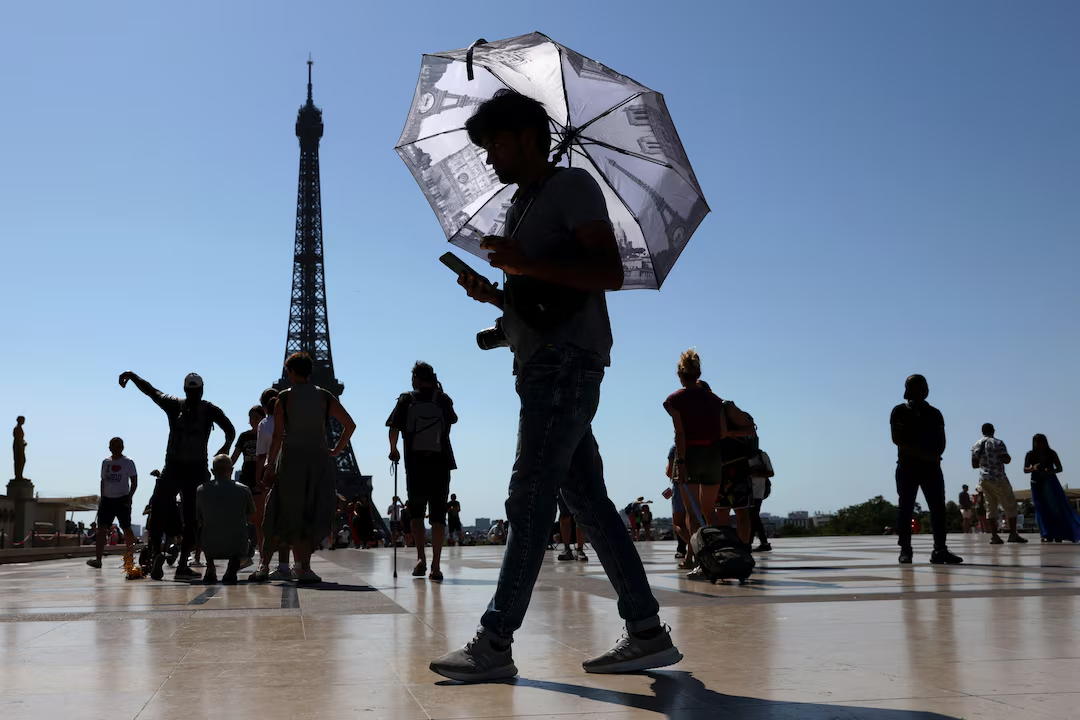A brutal heatwave is suffocating southern Europe, where temperatures have soared to a staggering 46C (114.8F) in Spain and nearly the entire mainland of France has been placed under heat alerts. This extreme weather is not just a fleeting anomaly; it is the harsh reality of climate change, exacerbated by fossil fuel pollution, as stated by UN Secretary-General António Guterres, who asserts that extreme heat has become "the new normal."
Record Temperatures Create Health Crisis
In Spain, the town of El Granado reached a blistering 46C, shattering previous June records. Doctors are sounding alarms over the combination of sweltering days and uncomfortably warm nights, which can be lethal for vulnerable populations. Hospital admissions in regions like Tuscany, Italy, have surged by 20%, highlighting the immediate health impact of this climate crisis.
Evacuations and Emergency Responses
As reported by BBC, over 50,000 people in Turkey have been forced to evacuate due to devastating forest fires. The French government has issued unprecedented heat alerts across 88% of its administrative areas, urging businesses to modify work hours to protect employees. Public schools in France are closing their doors, a stark reminder of the urgent need for systemic adaptations in response to climate chaos.
Historical Context of Climate Inaction
This summer"s heatwave is a direct result of a heat dome trapping hot air over Europe, a phenomenon that has been linked to climate change driven by human activity. According to Washington Post, Europe has warmed over 2C since preindustrial times, leading to more frequent and intense heatwaves. This is not merely a weather event; it is a climate emergency that demands immediate action.
Social Justice Implications of Extreme Heat
Low-income communities, particularly in urban areas, are disproportionately affected by extreme heat. As noted by urban climatologist Radhika Khosla from the University of Oxford, concrete jungles amplify heat, leaving residents with fewer options for relief. Marginalized populations that already face health disparities are now at greater risk, as they lack access to cooling resources and supportive infrastructures.

France shuts schools, Italy limits work outdoors in ...
Climate Change Denial Fuels the Crisis
Despite overwhelming scientific evidence, climate change denial persists at the highest levels of government. The failure to enact robust environmental policies continues to endanger lives. The International Federation of Red Cross and Red Crescent Societies is stepping in to provide aid, but these reactive measures are insufficient in the face of systemic negligence.
Future Consequences of Current Inaction
Research estimates that dangerous heat will lead to an increase in mortality rates across Europe, potentially killing 8,000 to 80,000 more people annually by the century"s end, as highlighted by Guterres. The time for half-measures has passed; it is imperative that we pivot towards sustainable policies that prioritize environmental justice and the well-being of all communities.







![[Video] Gunfire between Iraqi security forces and Sadr militias in Baghdad](/_next/image?url=%2Fapi%2Fimage%2Fthumbnails%2Fthumbnail-1768343508874-4redb-thumbnail.jpg&w=3840&q=75)
